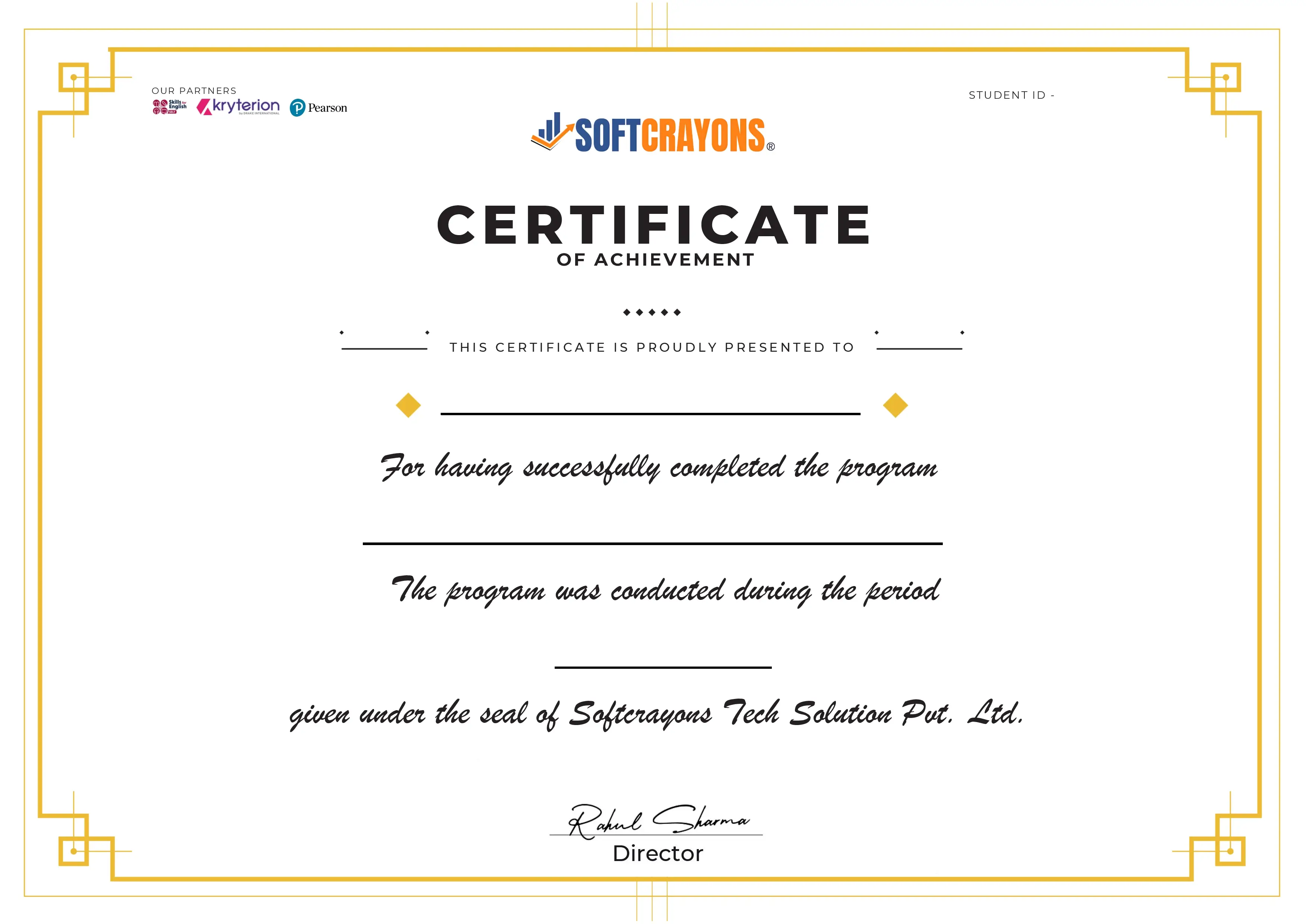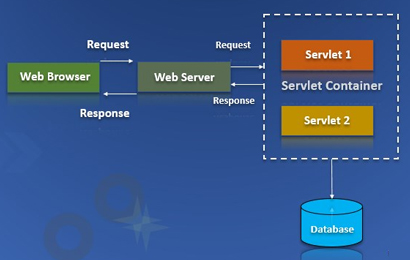RMI TRAINING
"Innovate. Integrate. Inspire The Future with SoftCrayons"
Softcrayons has the best Java RMI (Remote Method Invocation) Training for anyone who wishes to become an expert in building distributed Java applications. You can take our Java RMI course online or in person. It covers important topics, including remote communication, distributed objects, and how to connect to other Java-based systems.
Students learn how to create, install, and maintain Java RMI applications, as well as how RMI combines old and new systems in a way that works well. Students learn how to construct scalable distributed solutions by doing hands-on work and looking at real-world examples. Softcrayons also helps you find a job 100% of the time, so it's a great way to move up in your Java programming career.
Learn, Build Skills, Grow Limitlessly. Your IT Career Starts Here.

Course Duration
2 - 3 Months

New Batch
As per schedule hybrid mode

Payment
Flexible One-Time/Installment

Mode
Flexible Offline/Online
Professional Skill Development
Service Details
Best RMI Training Course
The RMI (Remote Method Invocation) Training Course from Softcrayons in is for students and Java professionals who wish to learn how to make distributed Java applications.This course teaches developers how to use RMI architecture to have Java programs talk to each other across a network. This lets them make systems that can grow, work as clients and servers, and work at the enterprise level.RMI is an important aspect of Advanced Java (J2EE) and is used a lot in enterprise software solutions, middleware applications, and distributed systems.
What the Course Will Teach
- The RMI Training Course gives you a lot of information about Java distributed computing model and how remote communication works in real life.
- Basics of Java and Networking
- Basic Ideas about Java
- Programming with Objects
- Basics of Java Networking
- Architecture for Clients and Servers
- Basics of RMI
- Getting to Know RMI Architecture
- Interfaces from a Distance
- Objects that are far away
- Ideas for Stubs and Skeleton
- Parts of RMI
- RMI Register
- Services for Naming and Binding
- Passing Parameters
- Serialization and Deserialization
- Programming using RMI
- Making RMI Server Apps
- Making RMI Client Apps
- Using Remote Methods
- How to Handle Exceptions in RMI
- Advanced RMI Ideas
- Manager of RMI Security
- Loading Classes Dynamically
- RMI over HTTP
- Things to Think About for Performance
- Deployment and Testing
Course Goals
- Learn about Java's distributed computing ideas.
- Use RMI to develop apps that work with clients and servers.
- Find out how business systems communicate with each other over long distances.
- Gain real-world experience with RMI projects in real time.
- Get ready for advanced Java and J2EE jobs.
- Who Should Take This Class?
- Developers of Core Java
- People who are learning Advanced Java or J2EE
- Students in engineering (CS/IT)
- People who work on enterprise Java apps
- People who want to work on distributed systems
What should new hires expect to make?
After finishing the RMI Training Course, new employees can expect to make between₹5 LPA to ₹6 LPA.
What You'll Do After RMI Training
- Make Java apps that work with clients and servers.
- Put into place remote methods and interfaces.
- Take care of security and distributed exceptions.
- Fix problems and keep network-based apps running.
- Combine RMI with J2EE apps.
Training Certificate
Students who finish the course get an RMI Training Certificate from Softcrayons, which proves that they know how to program in distributed Java.
Practice Interviews:
We have mock interviews as part of our training program to help you get ready for job interviews. These seminars can help you feel more sure of yourself, talk to people better, and find out what employers want.
What makes Softcrayons the best institute?
- We have the best online course and the best offline course for how you learn.
- Our teachers are experts in their fields and have been doing it for a long time.
- We always offer full support, like practice interviews and help finding a job.
- The goal of our curriculum is to teach you skills that will help you get a job.
Courses that are related
- Training for Core Java Certification
- Training in Advanced Java (J2EE)
- Training for Java Full Stack Developers
- Training for Spring Boot and Microservices
- Training in Web Services (REST and SOAP)
- Softcrayons is one of the best IT training schools in Noida. They offer:
- Trainers with a lot of experience in Java
- Curriculum that fits with the industry
- Sessions with hands-on practice
- Strong help with placing
Training Features
Live Interactive Classes
Real-time doubt clearing with expert instructors
Hands-on Projects
Build portfolio with industry-standard projects
Industry Curriculum
Updated syllabus matching current job requirements
Latest Technologies
Learn cutting-edge tools and frameworks
Online & Offline
Flexible learning modes to suit your schedule
Certification Support
Prepare for global IT certifications
LEARNING PATH
Master the Syllabus
Program Highlights

Top Faculty with Certification Facility
Learn from the best, as we impart world-class education with faculty who have rich academic & industry experience

Career Service: Job Readiness
Pursuing your desire to being job-ready through resume building sessions & MasterClass for interview preparation

Choose the way you want to learn
Enhance your learning potential by your choice of printed books, audio books, e-books, videos, and live classrooms

Placement Guarantee
Benefit from our network of over 500+ hiring partners from diverse domains to ensure a smooth job transition after 1 year
Common Questions
Join Our RMI Training
Guranteed Job Placement Program
- Expert-led training
- Hands-on projects
- Globally recognized certification
Training Certification
🎓 Earn Your Certificate
Successfully complete the training and assessments to receive your official certification. This credential validates your skills and enhances your career opportunities.
Showcase your achievements and share your milestones with your network to inspire others and grow your professional connections.

Interested in this Program? Secure your spot now!
Upcoming Batches
Interested in this Program? Secure your spot now!
What People Say About Us
Himanshu Tyagi
I have completed the course in 3-4 months of DIGITAL MARKETING training under the guidance of Experts Trainers. It was the best experience to learn under them and their teaching methods are out of the box. Best institute for professional courses and a great place. and very cooperative company with helpful staff.
Related Courses


